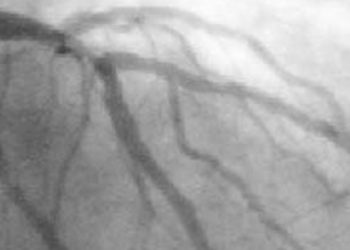Post-operative acute kidney injury more common in obese elderly
Image: PD
1. Very obese patients older than 65 had a 1.68 odds ratio (p=0.01) for acute kidney injury (AKI) compared with nonobese patients after patients were case matched for relevant risk factors.
2. 514 AKI cases were identified, 180 (35%) were orthopedic procedures and 334 (65%) followed colon or thoracic surgery.
Evidence Rating Level: 3 (Fair)
Study Rundown: The data presented in this case control study suggest that very obese patients have higher odds of developing AKI. Strengths of this paper include its extensive matching of patients across a number of criteria, as well as its adjustment for confounders that are thought to be associated with AKI. Therefore, the finding that the results are statistically significant even after matching and adjusting for confounders is strong. Moreover, the authors even matched patients at the hospital level across 47 different hospitals to adjust for possible treatment variations across hospitals and states, further strengthening the evidence. However, given that prior literature regarding the impact of obesity on AKI is conflicting, and that this is a case-control study incapable of proving relative risks, the data must be interpreted with caution.
Click to read the study in Annals of Surgery
Relevant Reading: The meaning of acute kidney injury and its relevance to intensive care and anaesthesia.
In-Depth [case-control study]: The Obesity and Surgical Outcomes Study (OBSOS) data set, which contains patients 65-80 years old who underwent hip or knee replacement, thoracotomy, or colon resection, was searched for patients. Patient records came from 3 states and 47 hospitals, and were case matched at the individual hospital level to account for treatment variance. Patients with prior history of dialysis dependence were excluded. Events of AKI up to 30 days post-operatively were included. AKI cases were matched with non-AKI case controls along a number of criteria. Bleeding, sepsis, hypotension and other confounders were also adjusted for. Before adjusting for confounders, very obese patients (BMI ≥ 35) had an odds ratio of 1.65 (p<0.005) of developing AKI. However, even after adjusting for other confounders, the odds ratio of developing AKI in very obese patients was 1.74 (p<0.005) without adjusting for hypotension and 1.68 (p=0.01) after also adjusting for hypotension.
By David Mattos and Allen Ho
© 2013 2minutemedicine.com. All rights reserved. No works may be reproduced without written consent from 2minutemedicine.com. Disclaimer: We present factual information directly from peer reviewed medical journals. No post should be construed as medical advice and is not intended as such by the authors or by 2minutemedicine.com. PLEASE SEE A HEALTHCARE PROVIDER IN YOUR AREA IF YOU SEEK MEDICAL ADVICE OF ANY SORT. Content is produced in accordance with fair use copyrights solely and strictly for the purpose of teaching, news and criticism. No benefit, monetary or otherwise, is realized by any participants or the owner of this domain.






